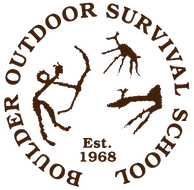RISK AT BOSS
Risk at BOSS Survival School
At BOSS survival school, we seek to provide you with a wilderness experience that minimizes your exposure to unnecessary risk. This does not mean that we can eliminate these risks entirely. The wilderness is beyond our control. Nature is beyond our control.
It would be impossible to include all possible risks here. If you have any questions, please call us to discuss them.
Risks Associated with Driving
According to statistics from the National Highway Traffic Safety Administration, your drive or shuttle ride to the BOSS survival school in Boulder is by far the riskiest part of your course. Our shuttle driving record is excellent, but due to unpredictable factors (primarily other drivers) there is always a risk.
Medicine in the Backcountry
Based on BOSS’s operating history, the majority of incidents requiring medical attention in the backcountry are straightforward and relatively simple to treat: i.e. blisters, burns and small cuts. During phases of BOSS courses in which participants are with the staff, the instructors are available to assist students with proper treatment of these and other issues or ailments. BOSS instructors have Wilderness First Responder training and carry extensive medical first aid and trauma kits. During phases of courses when instructors are not immediately available (during Solo or Student Expedition on Field courses, for example), it will be the responsibility of the student(s) to properly assess and treat any medical incidents. Again, most of the occurences during these phases have historically been mild and manageable. Your instructors will teach you basic wilderness first aid skills, but if you are particularly concerned about medical risks in the backcountry and how to best treat more advanced injuries, we recommend you consider taking a medical training course prior to joining us in the field at BOSS. For more information, please contact our office.
Risks Associated with Impact (Field Courses)
BOSS Field Courses have a unique element — Impact. As far as we know, there is no other program that will ask you to hike under adverse conditions (hot, bright days or cold, dark nights) with little or no food and limited water. And this is done during the first few days of the course, when you are new to the environment you are traveling in. This is extremely challenging by design. It has also been continually refined to minimize risk while maintaining our high standard for challenge and wilderness experience.
We often say the greatest unknown on the trail is you: for each course, up to 12 people from around the world have come to Boulder, Utah. Some come from humid cities at sea-level, others from mountain towns at elevation. Some work out regularly, others do not. The group can range from 18 to 70 years in age. With little more than a 1.5 mile test run, we gear up and head off into the desert without any food. Your clothing is limited to what’s on your body – no blanket, no poncho. At the start, the only information we have about you and your medical history is what you’ve reported to us on your medical forms. For your instructors to manage the safety of the group effectively, they must know the medical histories of every student on the course. Failure to report medications you take, medical conditions, etc, can cause risk to you and your group in the wilderness. It is also critical for students to stay in close communication with their instructors about any potential medical issues that arise.
Nausea, light-headedness, aches, pains, hunger, cramps, thirst, etc. are all common responses to not having food while hiking. These symptoms can be reduced through proper preparation before the course and managed with proper feedback during the course. Again, the most significant risk and the greatest unknown on the trail is you. Keeping in frequent and open communication with your instructors can minimize risk.
Risks Associated with Trail Hiking
There are risks that come with the territory where we operate. These can include, among other things: slipping and falling, falling objects, falling while climbing, falling while downclimbing, water hazards; exhaustion; exposure to temperature and weather extremes which could cause: hypothermia, hyperthermia (heat-related illnesses), heat exhaustion, heat stroke, sunburn, dehydration, hyponatremia or water intoxication; and exposure to potentially dangerous wild animals, insect bites, and hazardous plant life; equipment failure; improper lifting or carrying; etc. We ask all participants to acknowledge that camping, hiking, backpacking and backcountry activities entail known and unanticipated risks as well as inherent risks which could result in physical or emotional injury, paralysis, death, or damage to you, to property, or to third parties. You should understand that such risks simply cannot be eliminated without jeopardizing the essential qualities of the experience.
Do we plan to make you hypothermic/hyperthermic/sunburned/etc? No. Is it possible? Yes. Much of the responsibility of avoiding these risks rests with you, with guidance from your instructors.
Risks Associated with Solo (on Field Courses)
There are a handful of programs in the country that offer you the opportunity to spend time truly alone in the wilderness. The risks associated with Solo – when you’re sitting in your own solo site, usually along a river – are somewhat reduced at BOSS because we use two systems for communication that allow emergency contact. These will be explained to you before Solo begins, but rest assured they do not infringe on the privacy of your solo experience. Throughout your solo experience, you will know the location of at least one other student and your instructors. Because Solo typically comes toward the end of the course – after you’ve had plenty of trail time and have a foundation of skills to build on – we are confident in your being alone for a few days.
Risks Associated with Solo (on Navigator Courses)
We know of no other outfitter or school that offers you the opportunity to hike for 3, 4 or 5 days alone in the wilderness the way BOSS does on our Navigator courses. We reduce the risk of solo navigation with extensive training and practice beforehand, and by establishing a method of communication for you to use while on your solo. The solo portions of our Navigator courses present the ultimate test in competency and responsibility. Students who come on these courses must accept and embrace the risks that come with this responsibility.
Risks Associated with Skills (Skills Courses)
If you asked most BOSS staff what the greatest risk on Skills courses was, they’d say “improper knife use.” We teach knife safety and proper use early in each course, but there have been a few overeager students who found themselves on the way to the local clinic on Day 1. Knives present the risk of cutting yourself and/or others (obvious, but we need to say it). In many courses, we also use obsidian blades. Obsidian is 500 times sharper than surgical steel and can easily cut you. We teach and use essential safety protocols for all blade use.
Risks Associated with Basecamp (Skills Courses)
There are risks associated with spending multiple days in a camp. We ask that you keep all parts of the base camp clean to reduce the risk of animal encounters, especially if you’re working with hides or deer legs — both common on our Skills Courses. Although it is possible for bears and other wildlife to enter camp, it is extremely rare. We would like to keep it that way by being aware of the possibility and behaving accordingly. Food should be stored safely away from student sleeping areas and out of reach of bears.
Another basecamp risk involves hygiene. Make sure that your hands are washed for meals (especially when doing kitchen work) to prevent the spread of foodborne illness. Your instructors will review this with you during the course.
Risks Associated with the BOSS Property
Wild animals often cross the property at night, and care should be taken if you are camping outside. The ledge to the west contains loose rocks and steep cliffs so hiking up or down the ledge should be done with care. Some areas of the BOSS survival school may be under construction meaning that power tools, generators, and other building materials could possibly pose a risk to wanderers. To avoid these risks, follow the guidelines laid out by your instructors or other BOSS staff.
World-class outdoor survival training
World-class outdoor survival training does come with risk, but at BOSS Survival School we reduce that risk with extensive training and practice, world-class instruction, clear communication and by having Wilderness First Responders on hand. We also have more than 50 years roaming this landscape, giving us the experience and detailed knowledge necessary to delve deep into the heart of this remote and beautiful desert.

